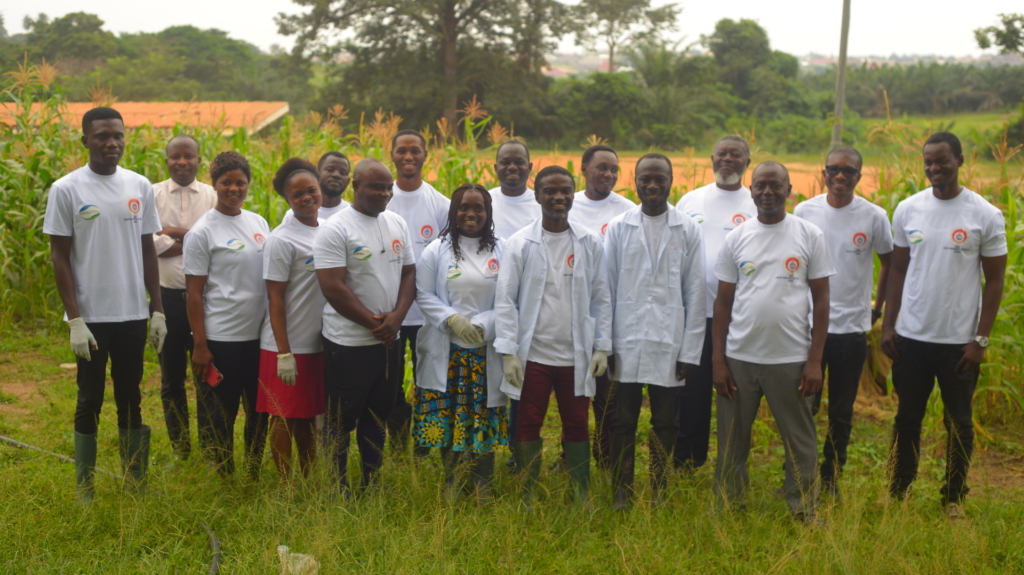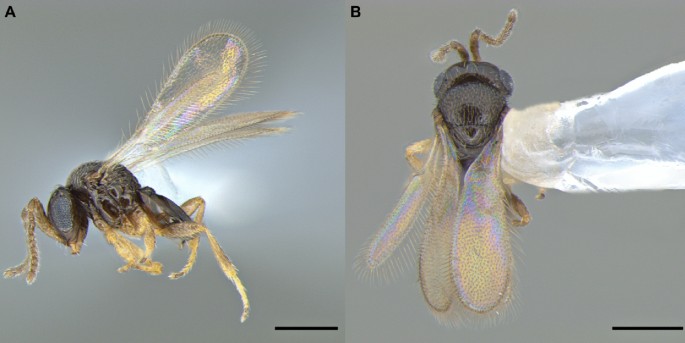The fall armyworm which was accidentally introduced in Ghana in 2016 poses a threat to sustainable maize production and food security in Ghana and Africa.
In 2017, Ghana had FAW-induced yield loss in maize of 27% translating into an economic loss of US $177 million.
While some level of control has been achieved in Ghana using synthetic insecticides, these chemicals are associated with human and animal poisoning.
They can also lead to the destruction of beneficial insects such as pollinators, pest resistance, and contamination of water bodies as well as many other ecological problems.
To sustainably manage FAW, Scientists at the Crops Research Institute have been exploring other management tactics other than synthetic insecticides.
Biological control using natural enemies known as parasitoids which are mainly parasites which eventually kill the host they feed on offer an ecologically sustainable means to manage FAW.
This project started in January 2020, is dubbed, Integrated Management of fall armyworm for sustainable food security in Africa.
It is funded by the Korea-Africa Food and Agriculture Cooperation Initiative (KAFACI).
The project is aimed at searching for biological control agents that could be mass-reared in the lab for field release to control fall armyworm.
The scientists have therefore found a natural enemy scientifically known as Telenomus remus.
The insects which have about 90 percent efficacy have been mass-reared in the lab and are ready to be released in maize farms to control fall armyworm attacking maize.
Project lead, Dr. Blankson Wadie is hopeful the intervention will lead to a drastic reduction in the fall army worm population.

He hinted at expanding the exercise to other areas of the country.
“As we start releasing today, we’ll be developing a calendar to find fall armyworm hotspots or farmers' fields. When the farmer gives us permission, we’ll do the release,” he said.
Latest Stories
-
Elevating Ghana’s creative industry: A blueprint for competing with Nigeria and South Africa
44 mins -
Poor finishing a problem for Asante Kotoko throughout the season – Prosper Ogum
1 hour -
Samini teams up with Francis Osei for ‘Sticks N Locks’ EP
1 hour -
Government should resource record labels – Seven Xavier
1 hour -
I need majority in parliament to successfully complete my term – Akufo-Addo pleads
2 hours -
Next NDC government will not recognise illegal contracts signed by current administration – Sammy Gyamfi
2 hours -
Premier League clubs vote in favour of spending cap plans
2 hours -
Nigeria’s fuel crisis brings businesses to a halt
2 hours -
King Promise impresses fans at sold out show in Singapore
2 hours -
Ejisu by-election to proceed after plaintiff withdraws injunction application
2 hours -
CSOs and NGOs unite to push for priority demands at INC-4
2 hours -
Fuel tanker bursts into flames on Kumasi-Accra highway
2 hours -
EC’s stolen BVR kits, laptops: One granted bail, three still on remand
2 hours -
2 Things: Sista Afia releases first song off her upcoming album
3 hours -
GHS to embark on COVID-19 vaccination campaign starting May 4
3 hours

